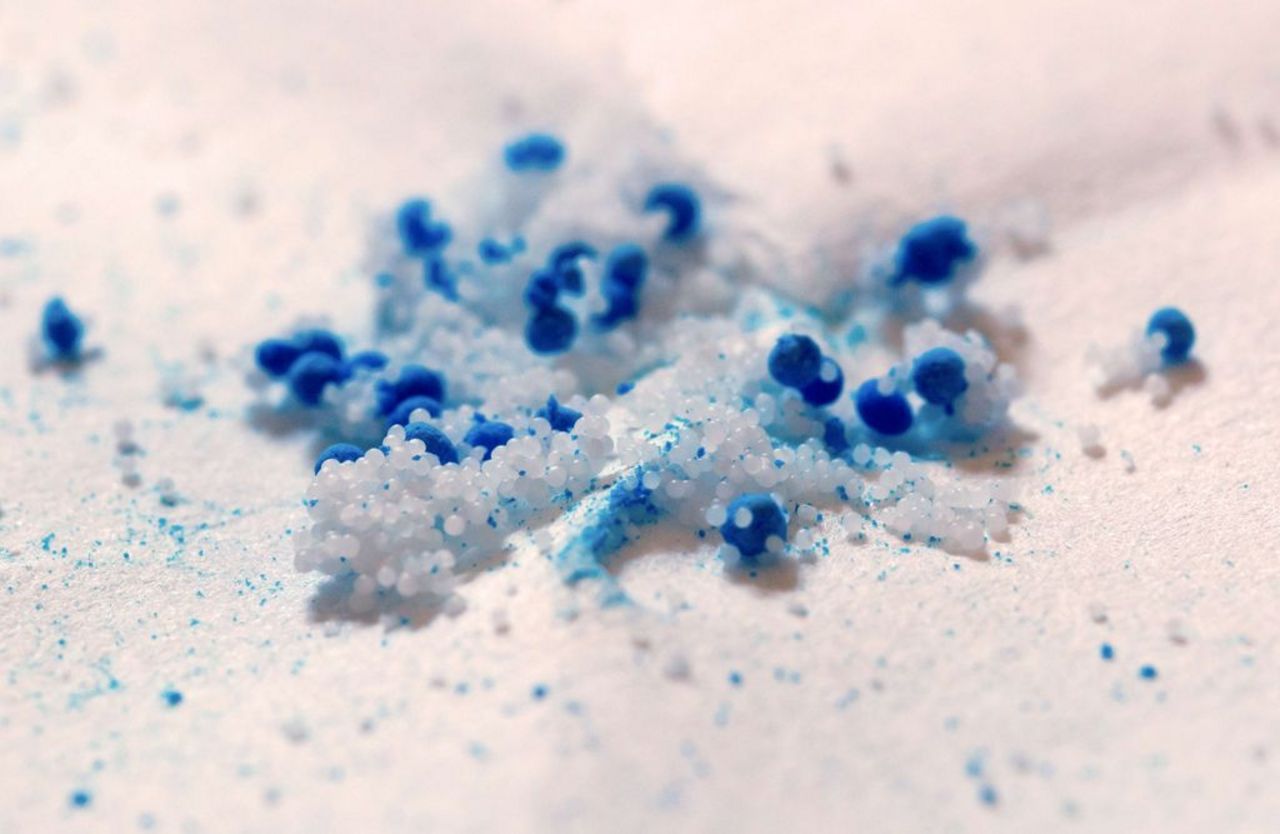Project brief
Click here for Project brief of PlasM
Project
PlasM - Microplastic in Fish

Plastic litter and marine fish
The huge amount of man-made solid waste materials ending up in the oceans becoming marine litter was identified as one of the pressing global challenges. The major part of marine litter is plastic. We investigate the amount of microplastics in marine fish and if this is a threat for the animal.
Background and Objective
Marine litter comprises a wide range of materials such as glass, metal, wood, rubber and plastics. Plastic waste was already identified as special problem, because it persists in the environment. In European regions about 70-80% of marine litter is plastic. It was estimated that about 4.8 million tons plastic litter enters the oceans each year.
Studies on marine litter are often based on an international agreed protocol ( e.g. ICES International Bottom Trawl Survey IBTS), for standardized recording of marine macro litter (> 2.5cm). Besides macro litter the small plastic particles - microplastic (< 5mm) - are of special interest. Microplastic is regarded as alarming from an ecologically point of view because it can be be taken up by marine organisms.
The aim of PlasM is an improved risc assessment of plastic in the marine environment - especially for fish and the consumer.
Approach
- Sampling of marine fish
- Sampling of marine litter
- Extraction of micro plastic from fish
- Determination of Polymers using FTIR
- Determination of fish health status
Our Research Questions
- Which fish species are affected most?
- Which types of plastics were found in the sea?
- Does ingested microplastic affect fish?
- Is there a risk for fish concerning pollutants in microplstics?
- Which methods are most suitable to detect and characterize microplastic in environmental monitoring?
Results
- Which fish species are affected ?
Dab and herring from the North Sea and the Baltic Sea take up microplastic orally. - Which types of plastics were found in the sea?
Frequent macro litter polymers were polyethylene, polpropylene and polyamid. Microplastic found in fish was mostly polypropylene - Does ingested microplastic affect fish?
Microplastic fibers in the water do not affect fertilization and early development of fish. Ingested microplastic fibers do not affect health and growth of sticklebacks. - Is there a risk for fish concerning pollutants in microplstics?
Probably not, because of the low amounts of microplastics found in fish. - Which methods are most suitable to detect and characterize microplastic in environmental monitoring?
µ-FTIR is suitable to detect microplastics. Hoever it is time consuming in sample preparation and quantification.
According to current scientific knowledge, the small amounts of microplastics that are taken up by fish in the North and Baltic Sea do not affect fish health and fitness, as well as consumers.
The polymer composition of marine litter can be used to predict vertical transport proceses. Further on it should be part of future monitoring activities.
Links and Downloads
Thünen-Contact

Involved Thünen-Partners
Funding Body
-
Federal Ministry of Food und Agriculture (BMEL)
(national, öffentlich)
Duration
7.2017 - 12.2021
More Information
Project funding number: 2819108816
Funding program: Innovationsförderung
Project status:
finished
Publications
- 0
Kammann U, Nogueira P, Wilhelm E, Int-Veen I, Aust M-O, Wysujack K (2023) Abandoned, lost or otherwise discarded fishing gear (ALDFG) as part of marine litter at the seafloor of the Baltic Sea - Characterization, quantification, polymer composition and possible impact. Mar Pollut Bull 194(Part A):115348, DOI:10.1016/j.marpolbul.2023.115348
- 1
Kammann U, Nogueira P, Wilhelm E, Int-Veen I, Aust M-O, Wysujack K (2023) Item characteristics of marine litter at the seafloor of the Baltic Sea [Datenpublikation] [online]. Bremerhaven: PANGAEA, zu finden in <https://doi.pangaea.de/10.1594/PANGAEA.958427> [zitiert am 07.08.2023], DOI:10.1594/PANGAEA.958427
- 2
Kammann U, Nogueira P, Wilhelm E, Int-Veen I, Aust M-O, Wysujack K (2023) Quantitative descripton of marine litter at the seafloor of the Baltic Sea [Datenpublikation] [online]. Bremerhaven: PANGAEA, zu finden in <https://doi.pangaea.de/10.1594/PANGAEA.958432> [zitiert am 07.08.2023], DOI:10.1594/PANGAEA.958432
- 3
Bunge A, Lugert V, McClure M, Kammann U, Hanel R, Scharsack JP (2022) Less impact than suspected: Dietary exposure of three-spined sticklebacks to microplastic fibers does not affect their body condition and immune parameters. Sci Total Environ 819:153077, DOI:10.1016/j.scitotenv.2022.153077
- 4
Bunge A, Int-Veen I, Lang T, Hanel R, Scharsack JP, Kammann U (2022) PlasM - Microplastic in fish. Bremerhaven: Thünen Institute of Fisheries Ecology, 2 p, Project Brief Thünen Inst 2022/04a, DOI:10.3220/PB1643102022000
- 5
Bunge A, Int-Veen I, Lang T, Hanel R, Scharsack JP, Kammann U (2022) PlasM - Mikroplastik im Fisch. Bremerhaven: Thünen-Institut für Fischereiökologie, 2 p, Project Brief Thünen Inst 2022/04, DOI:10.3220/PB1643101116000
- 6
Bunge A, Kammann U, Scharsack JP (2021) Exposure to microplastic fibers does not change fish early life stage development of three-spined sticklebacks (Gasterosteus aculeatus). Micropl Nanopl 1:15, DOI:10.1186/s43591-021-00015-x
- 7
Rebelein A, Focken U (2021) Microplastic fiber diet - Fiber-supplemented pellets for small fish. MethodsX 8:101204, DOI:10.1016/j.mex.2020.101204
- 8
Rebelein A, Int-Veen I, Kammann U, Scharsack JP (2021) Microplastic fibers - Underestimated threat to aquatic organisms? Sci Total Environ 777:146045, DOI:10.1016/j.scitotenv.2021.146045
- 9
Int-Veen I, Nogueira P, Isigkeit J, Hanel R, Kammann U (2021) Positively buoyant but sinking: Polymer identification and composition of marine litter at the seafloor of the North Sea and Baltic Sea. Mar Pollut Bull 172:112876, DOI:10.1016/j.marpolbul.2021.112876
- 10
Maes T, Booth A, Galgani F, Bakir A, Barry J, Buhl-Mortensen L, Clayton L, Devriese L, De Witte B, Gago J, Hall M, Int-Veen I, Kammann U, Noren K, Näkki P, Rindorf A, Russell M, Silburn B, Storr-Paulsen M, Wodzinowski T (2021) Working Group on Marine Litter (WGML; outputs from 2020 meeting). Copenhagen: ICES, 90 p, ICES Sci Rep 3(51), DOI:10.17895/ices.pub.8185

![[Translate to English:] [Translate to English:]](/media/_processed_/2/9/csm_Embryo-Exp_Gelege_9F_dpf5-200513111619_c8534a8199.jpg)
![[Translate to English:] [Translate to English:]](/media/_processed_/2/9/csm_Embryo-Exp_Gelege_9F_dpf5-200513111619_9027994d44.jpg)
![[Translate to English:] Logo des Bundesministerium für Ernährung und Landwirtschaft](/media/allgemein/logos/BMEL_Logo.svg)